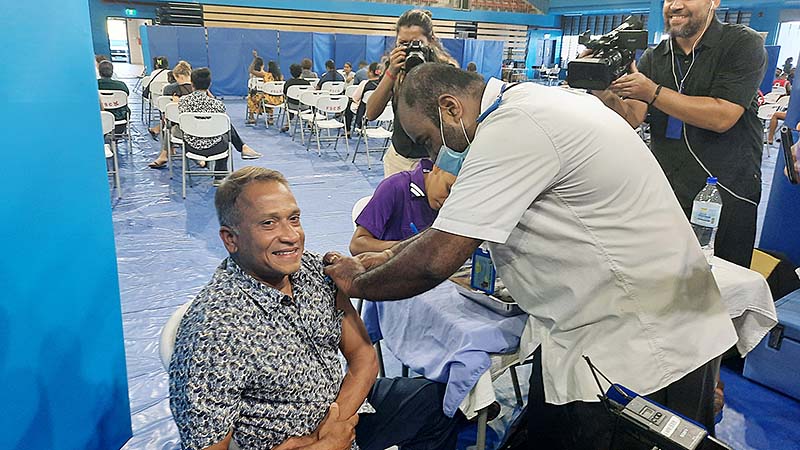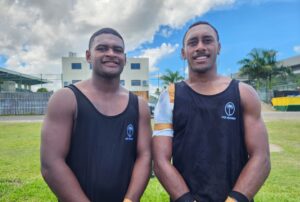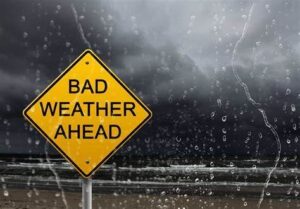United Nations Resident Coordinator for Fiji Sanaka Samarasinha is strongly advocating for COVID19 vaccination, warning of the potential risk of community transmission if herd immunity is not achieved when international borders reopen and international travel picks up.
Samarasinha who was among hundreds at the Vodafone Arena in Suva today for their first jab of the AstraZeneca vaccine said his decision to receive the injection was part personal and professional including the need to contribute to efforts to reverse the impact of the COVID19 pandemic, glimpses of which he witnessed during a recent trip to the West of Fiji.
“I’ve just been in the West last week, and seen the continuing issues that people face, serious challenges literally without food to eat, so the sooner we get this rolled out and people lined up to get their jobs, the sooner that can be addressed as a country and as a region,” Samarasinha said.
“My reasoning is to ensure that I am safe, and my family safe, my community is safe as I live here now in Fiji, and COVID-19 doesn’t make a distinction between a US citizen or a resident. And so we need to ensure that all of those who live in Fiji who are eligible to take the vaccine do take the vaccine.
“I understand that approximately 630,000 Fijians are eligible to take the vaccine. So I would strongly advocate for every single Fijian to take it to be healthy, because when we do open borders, there is a potential risk of course, that we might have community transmission so it’s for your own safety and the safety of your, of your family, and secondly, of course, I think it’s an important contribution to the country as a, as a citizen or a resident to create that herd immunity so that you can have the economy back on track.
“For me personally, also, my job is one that requires travel, I cover the entire time, it covers 10 countries in the Pacific and this past year I’ve not been able to travel to the other nine countries that I cover in the Pacific because the borders have been closed, vaccines have not been rolled out and this is fundamental to my work as well and now, because I will then be able to go and do the work that I have been doing in Fiji the past year or so in the other nine countries with a degree of personal safety, but also with the knowledge that I, the people who come into contact with me are also going to be safe.”
As with other vaccines administered through childhood, Samarasinha said COVID19 vaccines have side effects as well, all of which he expressed optimism in the local health ministry’s capacity to address.
He pointed to the vaccination to adverse side effects ratio including blood clot occurrences, at four people per million, describing it as negligible. In Fiji’s case, this equates to at least one or up to three people experiencing adverse side effects.
“We’ve all been taking vaccines for a very long time for other diseases. I understand some people may be a little bit more concerned because these vaccines were manufactured in a short period of time. And so that is a concern, but again like I said, the risk of not taking it, especially when people are travelling, either into the country or out of the country is going to be much greater than taking the vaccine.
“It’s important to understand, there is minimal risk and also how to monitor yourself. Once you’ve taken the vaccine. I am confident that the government and the Ministry of Health have the preparations for anyone who might have an adverse reaction.”
To date, more than 30,000 people in Fiji have registered for vaccination, with more than 6,000 have received their first dose. There were reports of side effects from the group of frontline workers who were vaccinated first, but none adverse. Fijian authorities are hoping to immunise up to 650,000 eligible individuals in Fiji.
This Sunday, 18 April 2021, Fiji marks another milestone in its COVID-19 containment efforts – marking one year since its last community transmission case.









